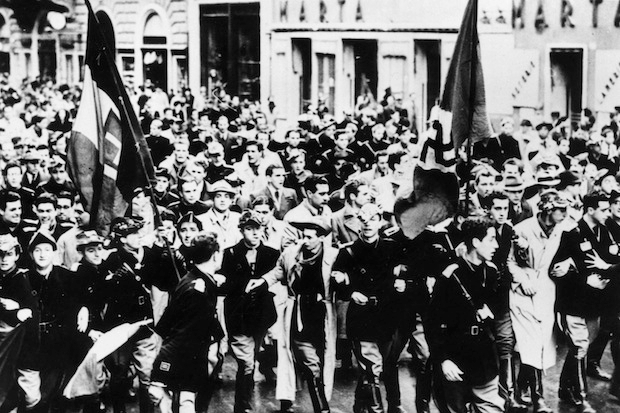Italy entered the second world war in circumstances very similar to those in which it signed up for the first. Its leaders waited for nine months after the outbreak until they thought they had identified the winner and extracted promises of territorial rewards. In 1915 they guessed rightly and attacked Austria, their formal ally for the past 33 years, and they seemed to have chosen correctly again in June 1940, when France was already beaten and the British had evacuated Dunkirk.
Italy’s new enemies were even older allies than Austria. Without the military aid of the French and the diplomatic support of Britain, Italy would never have become unified between 1859 and 1870. Generations of friendship, untarnished at least until Mussolini’s invasion of Ethiopia in 1935, made it almost impossible for the British to think of Italy as a potential military foe. With neither historical rancour nor contemporary rivalry to fuel a sense of antagonism, British diplomats and intelligence officers had felt no need even during the fascist years to make contingency plans for war. The consequence, as Roderick Bailey points out in Target: Italy, was ‘the shallow and amateurish nature of…clandestine resources’ and ‘the subsequent snail-like pace of progress towards targeting Italy’ secretly.
Special Operations Executive (SOE) began its Italian work in July 1940 and soon realised how much more difficult it was to function in an enemy country than in territory (such as France or Holland) occupied by an enemy power. Plenty of Italians might dislike the fascist regime, but very few were prepared to betray their country, risk their lives or kill their compatriots. British officers would thus trawl through their thousands of Italian captives in Africa and the Middle East and duly discover that the vast majority of them preferred to remain prisoners rather than be parachuted into Italy; the few that did volunteer were almost invariably judged to be ‘unsuitable’ or ‘unreliable’.








Comments
Join the debate for just £1 a month
Be part of the conversation with other Spectator readers by getting your first three months for £3.
UNLOCK ACCESS Just £1 a monthAlready a subscriber? Log in